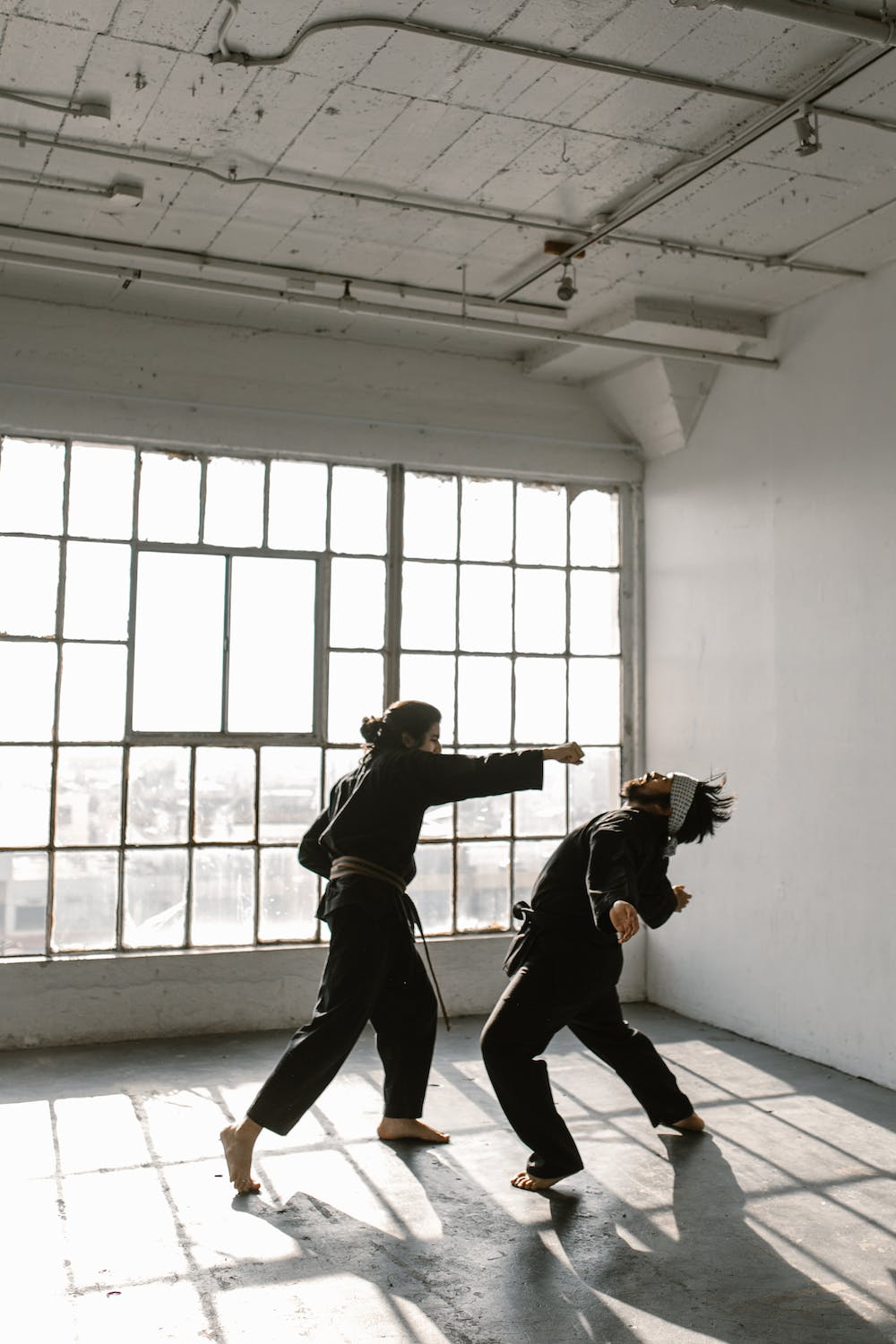Criminal Assault and Self-Defence: Lecturer And His Family Brutalize 20yr Old Girl in Lafia

On Friday, 21st of October 2022, a social media video emerged where Mr Fred Ayokhai, a senior lecturer of History and International Studies at the Federal University of Lafia, beat up a 20-year-old girl.
The girl whose name is Blessing Matthias had earlier assaulted the lecturer’s daughter, Emmanuella Ayokhai, for texting her boyfriend. Upon receiving this report, Mr Ayokhai and his entire family decided to take matters into their own hands.
They ganged up on Blessing, picked her up from her hostel, beat her mercilessly with sticks and wood, stripped her naked, tore her clothes, pulled her hair, and recorded the entire act. They made her swear never to do such again, then abandoned her in a forest.
Their actions showed a deep level of ignorance and arrogance that many people exhibit today, believing they can take laws into their own hands when they suffer some form of harm. By retaliating in this extreme manner, they committed several offences, including kidnapping, revenge pornography, and criminal assault.
What Is Criminal Assault?
Criminal assault is the unlawful application of force against another person, which results in that person suffering bodily harm. It can also be charged as a crime if the victim suffers psychological harm from the assault. Sometimes when we use unjustified force against another person, we may consider it normal, but things can quickly turn sour if the assault results in grievous harm.

To justify an assault, defences such as provocation and self-defence may avail a person. However, both of these defences must meet certain conditions to justify assault.
Self Defence
Self-defence is one of the most recognized rights every human being possesses. It is a defence that justifies using brute force to protect oneself, property, or a third party. Self-defence occurs when a person reasonably believes they are in imminent danger of bodily harm and uses force to defend themselves.
There is much disagreement on what warrants using force when it comes to self-defence. Some believe that self-defence is only acceptable if the individual using force is at immediate risk of being hurt. There are other circumstances, though, where people think self-defence is still appropriate, even if the target is not in immediate danger. Therefore, what justifies using force in self-defence?
To successfully enter a plea for self-defence, the law typically considers the following:
1. Innocence/Unprovoked Attack
One important factor to consider in a plea for self-defence is whether or not the defendant incited or provoked the attack. As a legal maxim says, “he who comes to equity must come with clean hands.” You cannot claim to have defended yourself from violence when you in fact threw the first punch. In such a case, the law will see it as retaliation.
2. Imminent Threat
In the face of imminent or impending danger, a person may use brute force to defend himself, his property, or any other party. One typical example is when someone tries to break into your home. You have the right to defend yourself in this situation by all means necessary – including using deadly force – to protect your family and yourself from harm. In R v. Rose, the defendant shot his father who had launched a deadly attack on his mother. He was acquitted on the ground of self-defence.
Self-defence may also be appropriate if you are under threat of violence, even if there hasn’t been any actual physical contact. People typically agree that you have the right to protect yourself if someone threatens to murder you with a weapon, for instance, before they have a chance to carry out their threat.
3. Genuine Fear of Harm
The court will apply a subjective test to decide whether or not the use of force was justified. It will examine the peculiar context of the case to determine whether the person was justified in fearing for his life. In Beckford v. R, a police officer shot an assailant because he received reports that the assailant was armed and dangerous. The court held that when a person genuinely believes he is about to be attacked, he may not need to wait for the first strike before defending himself.
4. Avoidance

Ultimately, each situation’s unique circumstances and how a reasonable person would understand them will determine whether or not the use of force can be justified by self-defence. The majority of the time, however, resorting to physical violence in self-defence should only be considered the last choice after all other measures have failed.
5. Proportionate Force
One very important factor in self-defence is the consideration of proportion. It’s like killing an ant with a sledgehammer. The intent is the same, but the force is extreme, this is the same situation for self-defence.
While no one expects you to measure the force as you fear for your life, the proportion of force used will also reveal whether your fear was truly genuine or whether you reacted more from anger or retaliation than from fear. The reasonableness of the force will be determined by the context of the situation.

Provocation
The use of force is always controversial, and there are many ways to justify its use. In some cases, the need for self defence may be clear, but in other cases, the situation may be less clear-cut. Provocation can help to justify the use of force against another person in certain situations.
Provocation occurs when a person is provoked into committing an act of violence by the victim. To better understand the defence of provocation, a person may create hypothetical scenarios and then see how others would react in those situations. By seeing how others would respond – both legally and morally – one can better understand when the use of force may or may not be justified.

For example, if someone mocks and insults your parents for being broke because they couldn’t afford to pay your fees, would you attack them? And if so, what level of force would you feel comfortable using? These are tough questions to answer without any real-world context or emotions, but provocation can help by providing a forum for discussion.
However, provocation like every criminal defence has certain requirements that must be met.
1. There Must Have Been A Provoking Act By The Victim
Like self-defence, every situation is unique and there is no easy answer when it comes to the use of violence. To justify the use of force with provocation, the victim of the assault must have done or said something to provoke the aggressor. Imagine walking into a home to meet your husband cheating on you with a stranger. If you attack either of them immediately, the defence of provocation may avail you.
2. In The Heat Of Passion
Imagine a bull charging towards you with its horns. When a person is provoked to attack, the law assumes that they reacted in the heat of passion, without having time to think about the consequences. If evidence shows anything contrary, the defence of provocation will fail.
Let’s use our earlier scenario. After catching your husband cheating on you in your home, you meet the lady in a mall days later and you attack her. You cannot use the defence of provocation here, because you’ve had time to cool off.
The only exception to this is if the provoking act was continued. So say you meet her in the mall with your husband again. If you attack either of them now, provocation may avail you because a fresh provoking act has arisen.

3. Proportion
The greatest mistake a person can make is to assume that they can react violently whenever they are provoked. While the provocation test depends on the specific circumstances of the case, the law also applies some measure of objectivity.
When the act of provocation is weighed against the person’s reaction, the court will consider whether any reasonable person would have reacted similarly. The court will not use your temperament as the standard, especially when a life was lost due to your violence.
Therefore, it is important to control your temper as much as possible and to avoid violence when you are provoked. Even if you must react, do not throw caution to the wind completely and do whatever you want in the name of provocation. It may not end well.
Conclusion
While self-defence leads to certain exoneration, provocation may not always exonerate, especially when a life is lost. So rather than taking matters into your own hands in a fit of rage, it is advisable to control your temper as much as possible, to avoid a sad ending for both you and your antagonist.
There are many ways through which Emmanuella’s family could have handled the situation without going so extreme and ruining a young girl’s life. While the law recognizes instances of self-defence and provocation, their action falls under neither and is completely inexcusable.
All images are sourced from Pexels; Pixabay; Unsplash, free for use and no attribution required.
Every issue has a legal side to it, whether we realize it or not. My goal is to educate my audience about these legal issues that arise in our societies, especially as a black woman. My Legal articles bring a refreshing, fun, and objective view to trending topics across the globe. In the end, I hope you can learn or unlearn a thing or two wherever the need arises.

